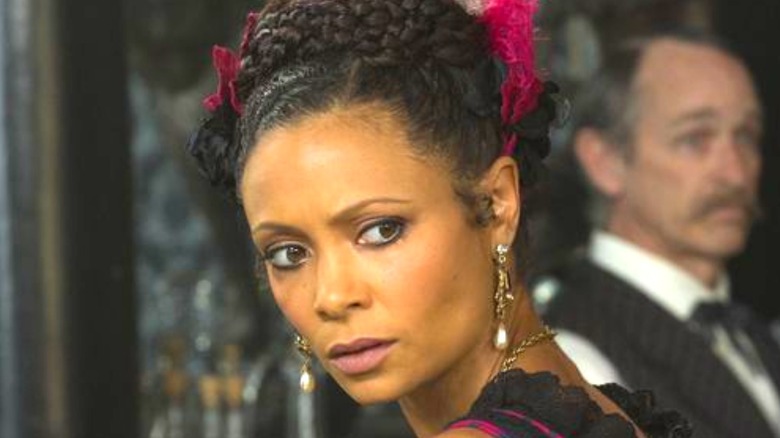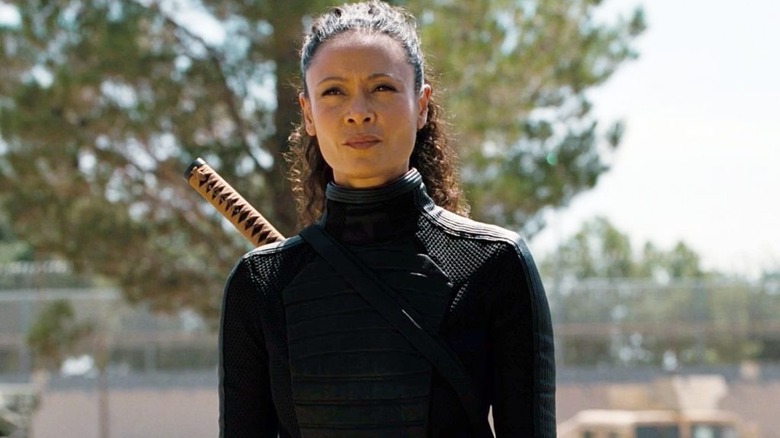The Secret Meaning Behind The Mariposa Saloon In Westworld
Some television shows run for years, never straying too far from the narrative template conjured for a pilot episode. Others find ways to affect subtle narrative or stylistic changes specifically designed to keep things fresh. Then, there are shows like HBO's sprawling sci-fi drama "Westworld," which change with such frequency that they're unrecognizable from one season to the next. Few series have ever been quite as uniquely suited to change, with "Westworld" creators Lisa Joy and Jonathan Nolan utilizing an "anything goes" attitude that ensures their series evolves not only from season to season, but episode to episode.
The duo's fierce devotion to often head-spinning shifts in tone and narrative focus has made the first three seasons of "Westworld" as frequently awe-inspiring as they've been utterly confounding. Given where things left off at the end of season 3, things are only going to get more complicated in season 4 of "Westworld." As for the characters within those narratives, most are about as far from where they started their journeys as one could imagine. That's particularly true of Thandiwe Newton's Maeve Millay, who began the series as a tough-talking madam, only to be transformed into her current iteration of a host-controlling, katana-wielding badass who's not to be messed with under any circumstances.
A savvy few "Westworld" fans might've seen Maeve's dramatic transformation coming, as her former theme park haunt had been slyly teasing her metamorphosis since we first laid eyes on her.
The Mariposa Saloon teased Maeve's transformation
We first met Maeve as the spirited madam of Sweetwater, the central town of "Westworld." As diehard fans of the series no doubt recall, the name of the watering hole where she ran her operation was the Mariposa Saloon. As it turns out, that name has a very specific meaning in regards to Maeve's ensuing narrative arc.
As some linguists might be apt to tell you, Mariposa is indeed the Spanish word for "butterfly." That name could not be more pointed in regards to Maeve's astonishing transformation, with Season 1 depicting Maeve as a host like any other, meaning she was obliviously cocooned in a narrative that required little more of her than to live, die, and repeat at the whim of any park guest. Maeve's transformation from lowly "Westworld" worker drone to full-blown warrior queen began early in the season, however, around about the time she began recovering memories from a past narrative.
That recovery was, of course, engineered by host creator Dr. Robert Ford (Anthony Hopkins) to a very specific end, and eventually led to Maeve gaining the ability to control almost every host in Westworld and beyond. As she's learned to hone her abilities, Maeve has continued to transform in ways too profound to detail here. So yes, the "butterfly emerging from a cocoon" analogy teased by the naming of the Mariposa Tavern is very appropriate. It's also one of the most clever Easter eggs "Westworld" has conjured to date.

